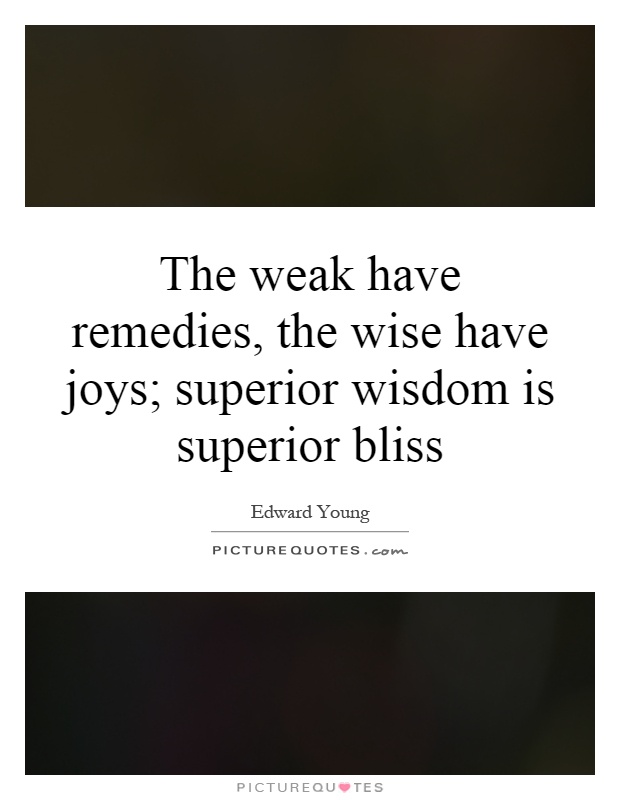The weak have remedies, the wise have joys; superior wisdom is superior bliss

The weak have remedies, the wise have joys; superior wisdom is superior bliss
Edward Young was an English poet and playwright who lived during the 18th century. He is best known for his work "Night Thoughts," a series of poems that explore themes of mortality, grief, and the search for meaning in a world filled with suffering. In this context, the quote "The weak have remedies, the wise have joys; superior wisdom is superior bliss" takes on a profound significance.Young believed that true wisdom comes from understanding the nature of suffering and finding ways to transcend it. He saw the weak as those who are unable to cope with the trials and tribulations of life, constantly seeking remedies to alleviate their pain. In contrast, the wise are those who have learned to accept and even embrace the challenges that life presents, finding joy and fulfillment in the process.
For Young, superior wisdom is not just about intellectual knowledge or cleverness, but about a deeper understanding of the human experience. It is about recognizing the impermanence of life and the inevitability of suffering, and yet still finding reasons to rejoice and be grateful. This kind of wisdom brings a sense of peace and contentment that is far more enduring than any temporary remedy for pain or hardship.












 Friendship Quotes
Friendship Quotes Love Quotes
Love Quotes Life Quotes
Life Quotes Funny Quotes
Funny Quotes Motivational Quotes
Motivational Quotes Inspirational Quotes
Inspirational Quotes